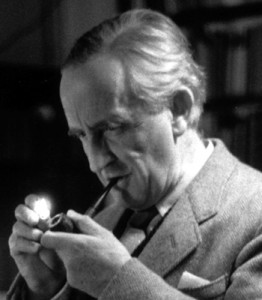 Known as the father of “high fantasy,” Tolkien has been on of the most influential figures in many geeks’ lives. Even if you aren’t an elf-obsessed Tolkien fangirl (like me) your favorite RPG, comic book, movie, or fantasy series probably was heavily influenced by the works of Tolkien. Hell, with the release of The Hobbit, even your Denny’s breakfast is Tolkien themed. But who was he, and why are
Known as the father of “high fantasy,” Tolkien has been on of the most influential figures in many geeks’ lives. Even if you aren’t an elf-obsessed Tolkien fangirl (like me) your favorite RPG, comic book, movie, or fantasy series probably was heavily influenced by the works of Tolkien. Hell, with the release of The Hobbit, even your Denny’s breakfast is Tolkien themed. But who was he, and why are crazy people people so crazy for his books?
I am a scholar (read: overzealous fangirl) of Tolkien’s Middle Earth, a fantasy history of our own world which laid the foundation for all fantasy works that have followed. The enormity and depth of Middle Earth is astonishing, and it includes countless maps, illustrations, histories, races and species of beings, and multiple native languages which are completely flushed out and translatable. For every story that was published during his lifetime, there are countless other tales that he wrote only to give his published world a back story. It’s overwhelming and inspiring. So, here is a handy guide to my favorite of Tolkien’s Middle Earth writings.
The Hobbit
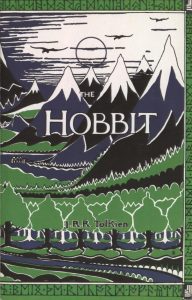 A children’s tale about a funny little creature that lived in a hole and was tricked by a wizard into going on a great adventure. It’s a classic, and I have my class read it every year. I love it because it introduces the reader to the lighthearted side of Tolkien’s writing. There is a great joy in the simple adventure story, but there is a definite disconnect with the feel of Tolkien’s other writings. This book was written to be a stand-alone piece, and was actually retconned to make Gollum more evil in a later publishing to fit with Lord of the Rings. Still, it’s a great introduction to Middle Earth, and is a great piece of literature on it’s own. Everyone should read it at least once.
A children’s tale about a funny little creature that lived in a hole and was tricked by a wizard into going on a great adventure. It’s a classic, and I have my class read it every year. I love it because it introduces the reader to the lighthearted side of Tolkien’s writing. There is a great joy in the simple adventure story, but there is a definite disconnect with the feel of Tolkien’s other writings. This book was written to be a stand-alone piece, and was actually retconned to make Gollum more evil in a later publishing to fit with Lord of the Rings. Still, it’s a great introduction to Middle Earth, and is a great piece of literature on it’s own. Everyone should read it at least once.
Lord of the Rings
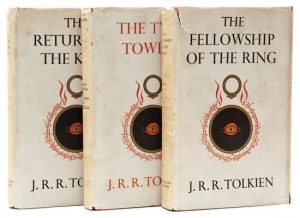 Tolkien’s largest work, and the only other book besides The Hobbit that was published during his lifetime, takes a much darker look at Middle Earth. Tolkien captures the weight of time beautifully in this story. The reader enters a world that is ruled by the pale echos of long forgotten civilizations, being abandoned by the elves who have protected it since before time began. Humans, the youngest and arguably least qualified of the great races, are left to defend the world against the horrors of an ancient demi-god. History and the reoccurring problems of the world are a huge theme in this book. There are no “happy endings” in history, there are good times and bad times, and Tolkien mirrors that in Middle Earth. The people who face the hard times do what they can, and sometimes they succeed against insurmountable odds, even if they are only a hobbit.
Tolkien’s largest work, and the only other book besides The Hobbit that was published during his lifetime, takes a much darker look at Middle Earth. Tolkien captures the weight of time beautifully in this story. The reader enters a world that is ruled by the pale echos of long forgotten civilizations, being abandoned by the elves who have protected it since before time began. Humans, the youngest and arguably least qualified of the great races, are left to defend the world against the horrors of an ancient demi-god. History and the reoccurring problems of the world are a huge theme in this book. There are no “happy endings” in history, there are good times and bad times, and Tolkien mirrors that in Middle Earth. The people who face the hard times do what they can, and sometimes they succeed against insurmountable odds, even if they are only a hobbit.
The Silmarillion
This is my favorite of Tolkien’s works, and was actually not meant for publication. It was compiled from Tolkein’s notes after his death. This is basically the bible of Middle Earth and documents the history of the world and the elves. I love the different tales of the elves because they do everything on a much more epic scale than humans. They are wise beings by the time of the Lord of the Rings, but they earned it through ages of betrayals, mistakes, love, and loss. My favorite tale is the story of Beren and Luthien, the elven princess who fell in love with a mortal man. Arwen and Aragorn are 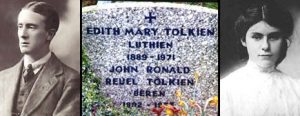 but a pale shadow of this story. If Arwen and Aragorn went hand in hand to face Sauron alone (and Arwen was a bad ass fighter and magic wielder), you might have some idea of the epic scale of this love story. It defies the ages and death itself, and Tolkien even had the names Beren and Luthien engraved on the headstone that he shared with his wife of fifty years.
but a pale shadow of this story. If Arwen and Aragorn went hand in hand to face Sauron alone (and Arwen was a bad ass fighter and magic wielder), you might have some idea of the epic scale of this love story. It defies the ages and death itself, and Tolkien even had the names Beren and Luthien engraved on the headstone that he shared with his wife of fifty years.
Many people cannot make it through The Silmarillion, but I encourage people to look at it like they would a history book or bible. It’s not really meant to be read through to tell a singular liner story. Think of it as a collection of stories, and if you find one you aren’t interested in, skip it. There are some great parts and some very dry parts.
The Book of Lost Tales I & II
These are the earliest versions of the tales that eventually became the other stories based in Middle Earth. They are a fascinating read for any Tolkien fan(atic), but might not appeal to the general audience. I love reading these stories and comparing them with the final versions that appear in the published books. The names are different, and he even called the elves “gnomes” in these early drafts, until realizing that the term had very different meaning for most readers. These books were also compiled and edited by Christopher Tolkien after his father’s death.
The Children of Húrin
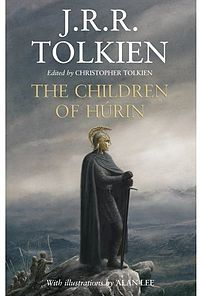 This story might be the most tragic in the entire history of Middle Earth. It tells the tale of Húrin Thalion and his offspring. Húrin was tortured by Morgoth himself (that’s Sauron’s boss for LOTR fans) to reveal the location of a hidden elven city. Húrin refuses, and his line is cursed by Morgoth for all time. He is placed on a mountain top and is magically able to witness the sorrows that befall his wife and children. If you’re a fan of Romeo and Juliet, or Othello, this story could be right up your alley.
This story might be the most tragic in the entire history of Middle Earth. It tells the tale of Húrin Thalion and his offspring. Húrin was tortured by Morgoth himself (that’s Sauron’s boss for LOTR fans) to reveal the location of a hidden elven city. Húrin refuses, and his line is cursed by Morgoth for all time. He is placed on a mountain top and is magically able to witness the sorrows that befall his wife and children. If you’re a fan of Romeo and Juliet, or Othello, this story could be right up your alley.
Letters from Father Christmas
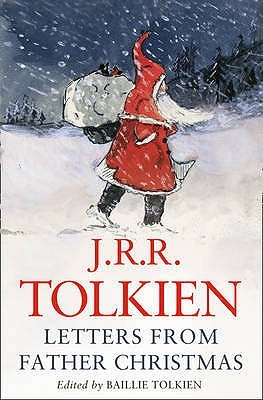 This book has nothing to do with Middle Earth, but it is a truly magical book. These are a collection of letters and pictures that were created between 1920 and 1942 for his children. They are written from Santa or his trusty elf secretary and tell enchanting stories about life at the North Pole. It also is a wonderful collection of Tolkien’s original artwork, which is very charming and impressive and too often left out of modern publications of his work. It’s a favorite of mine each Christmas.
This book has nothing to do with Middle Earth, but it is a truly magical book. These are a collection of letters and pictures that were created between 1920 and 1942 for his children. They are written from Santa or his trusty elf secretary and tell enchanting stories about life at the North Pole. It also is a wonderful collection of Tolkien’s original artwork, which is very charming and impressive and too often left out of modern publications of his work. It’s a favorite of mine each Christmas.
In the wake of the modern popularity of films based on Tolkien’s work, I highly encourage everyone to read the original stories. It’s easy to lose the magic of his genius in the commercialized hype. To forget that it’s the characters that make the tales meaningful, rather than the overblown special effects.
Happy 121st Birthday, Professor Tolkien. Don’t worry, we won’t tell the Sackville-Bagginses.